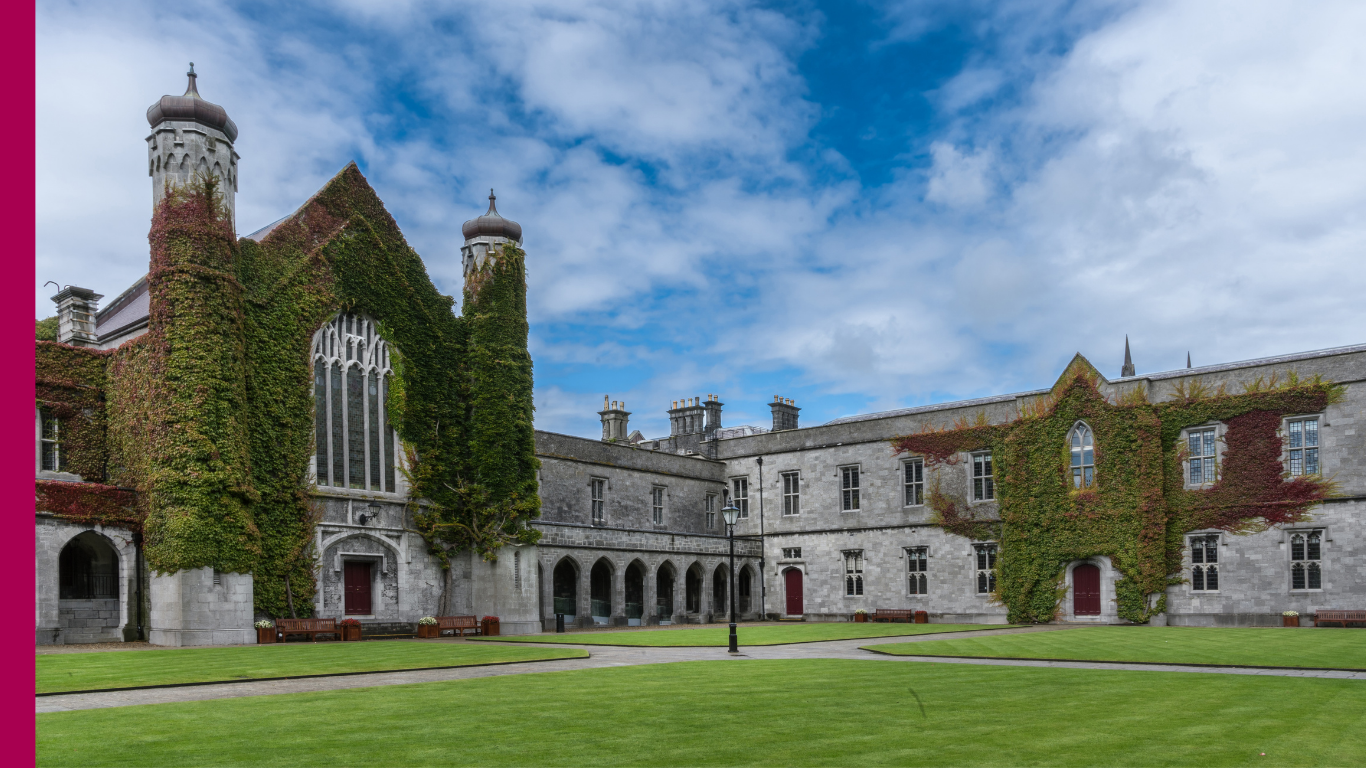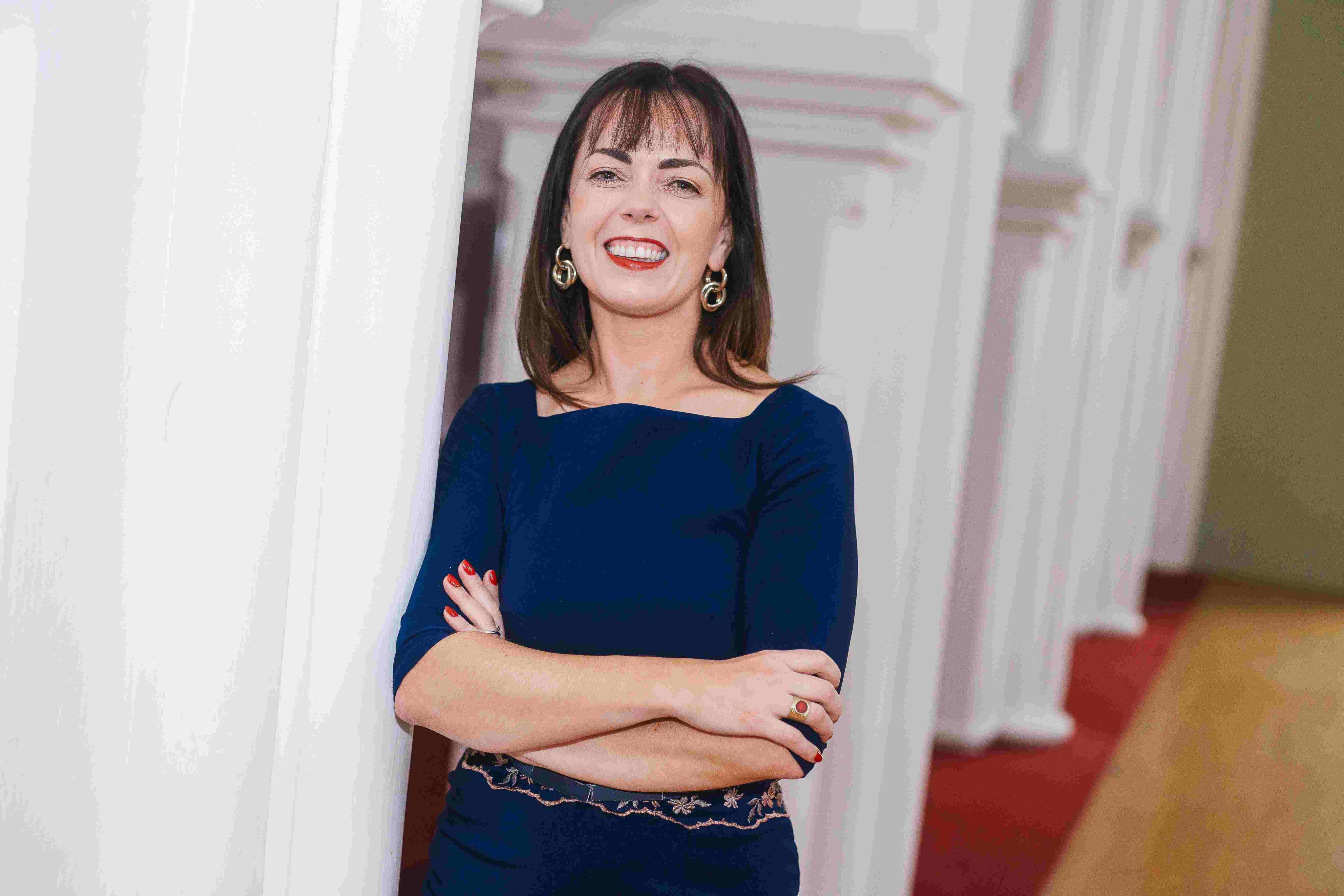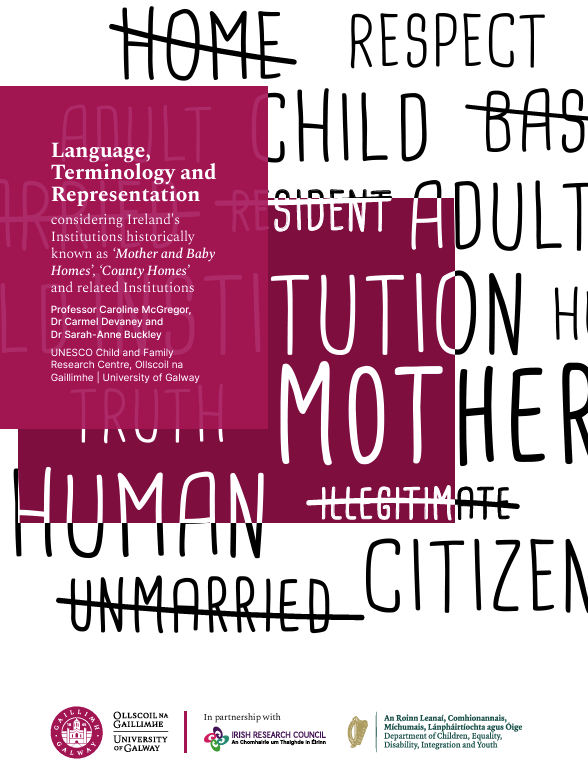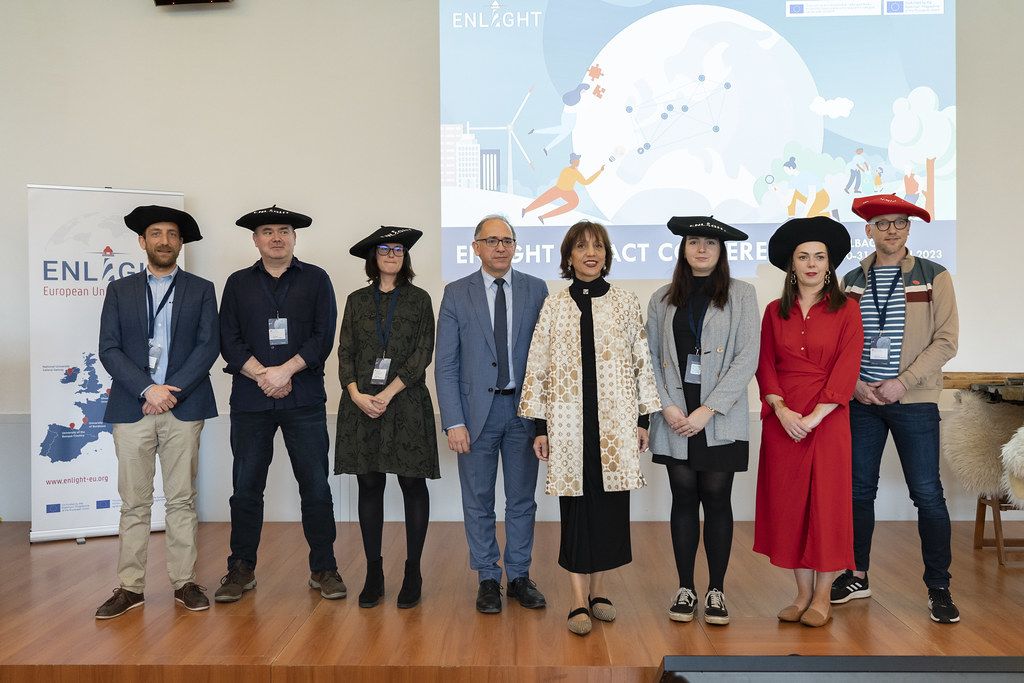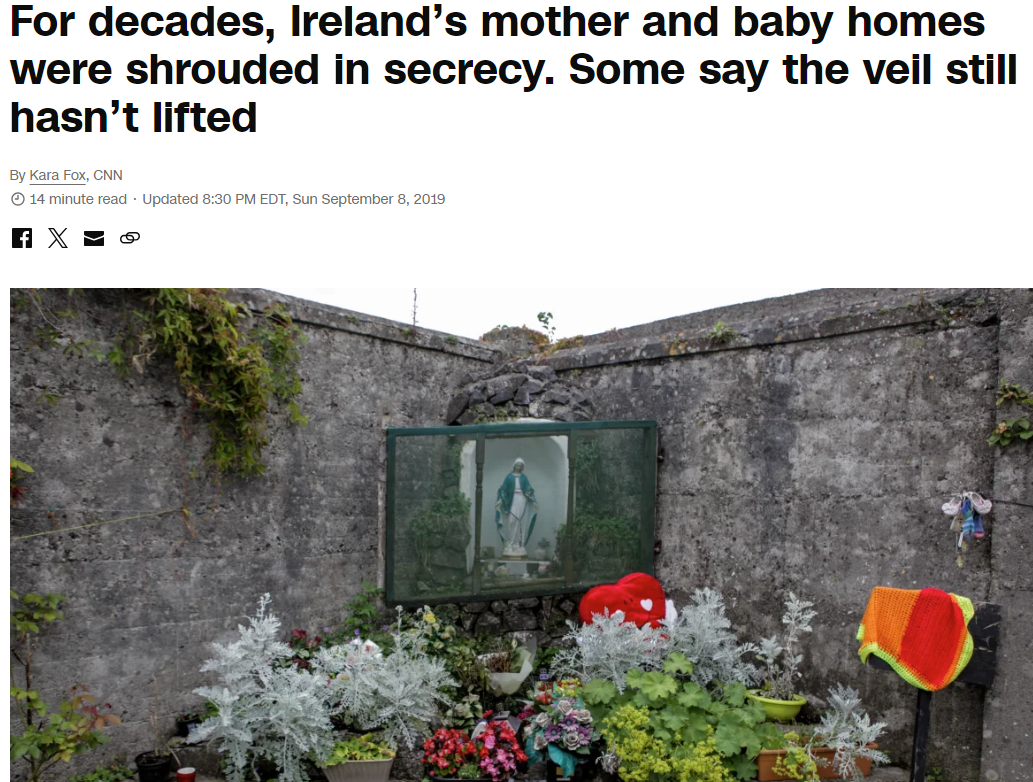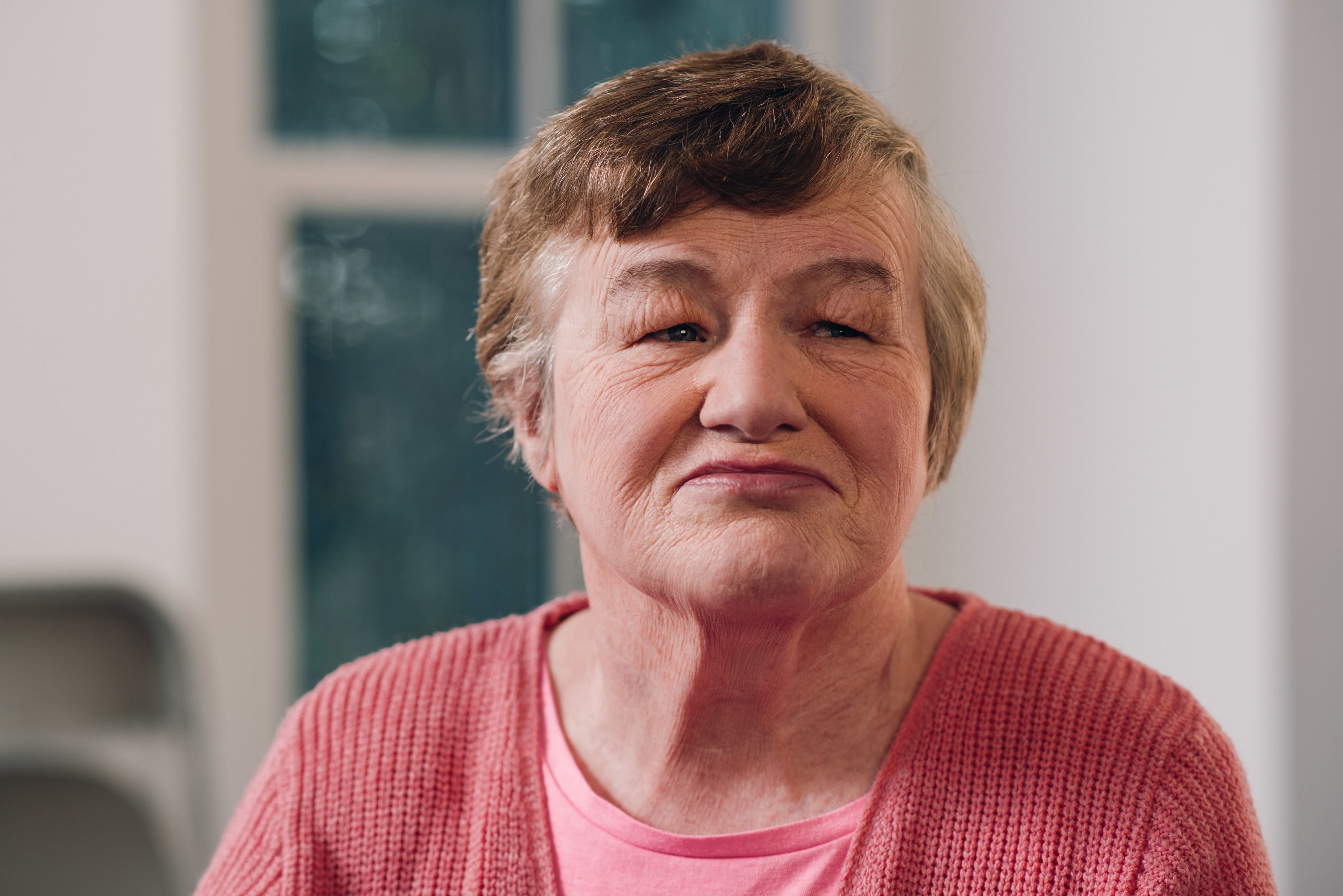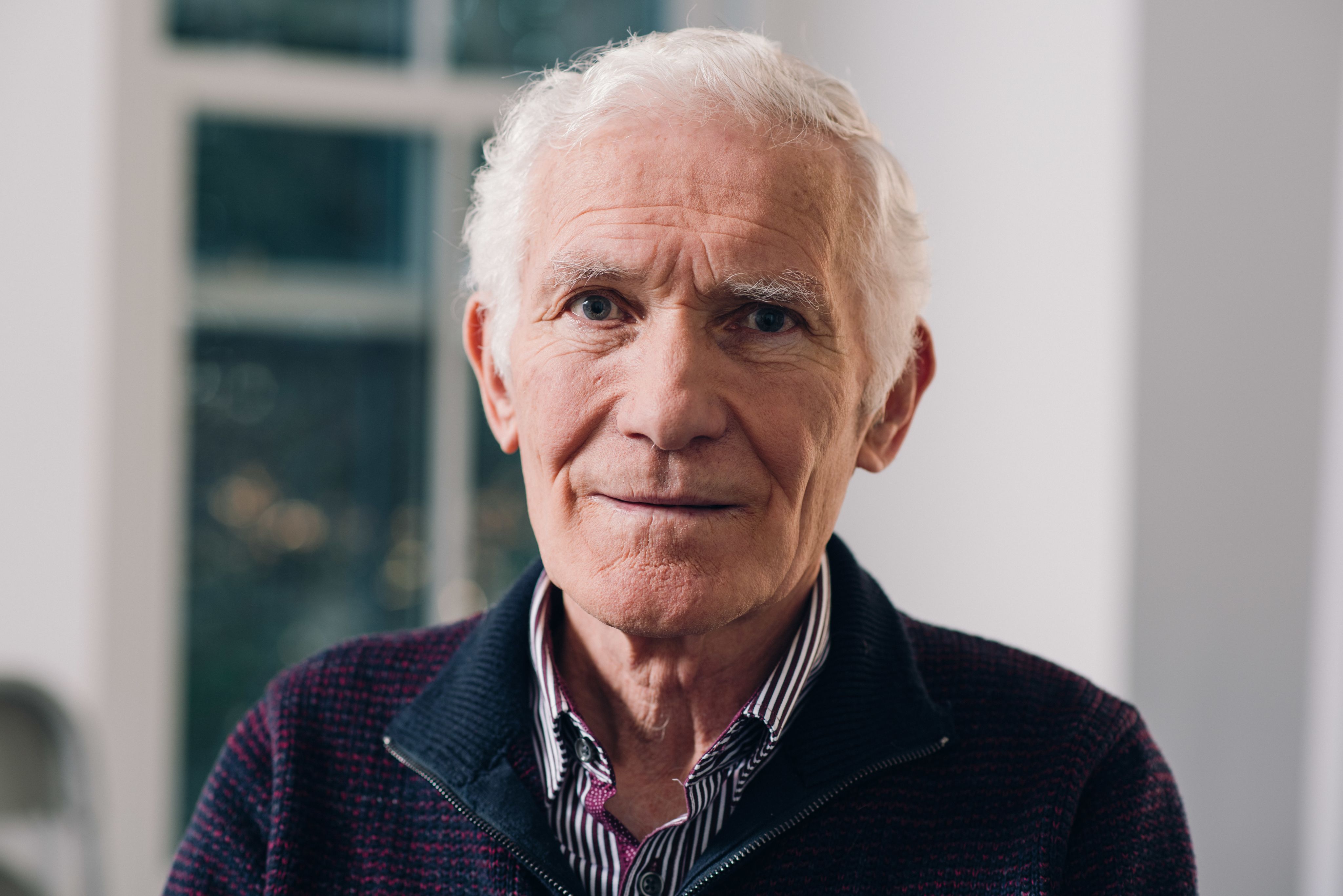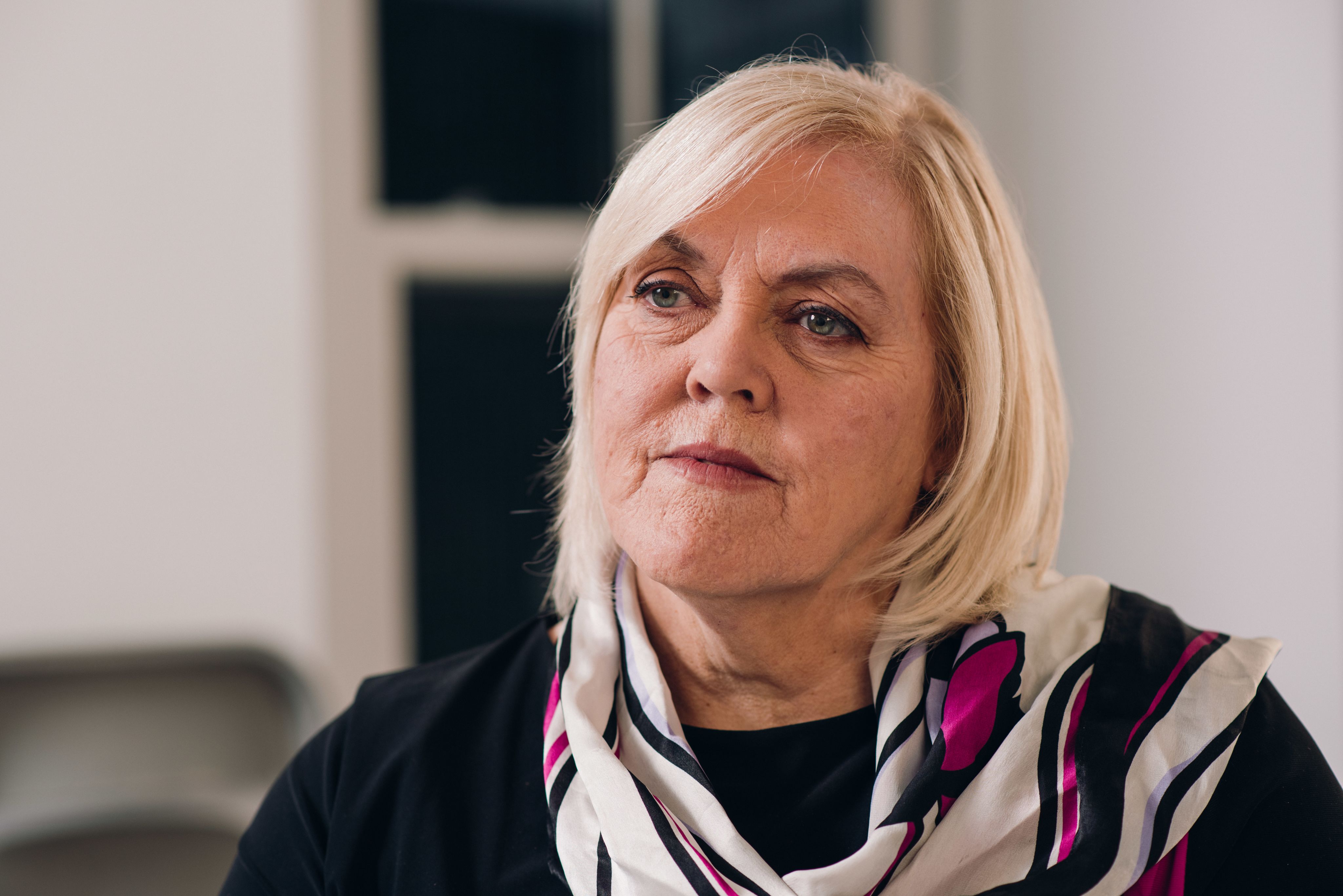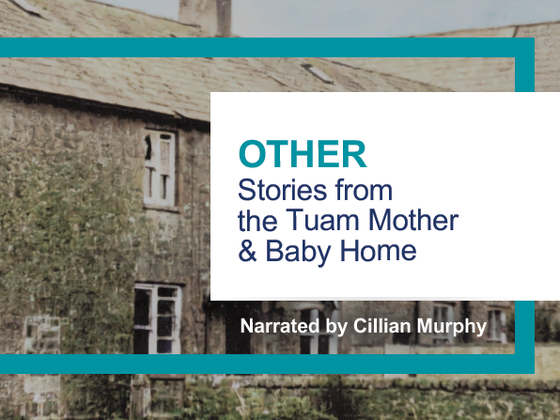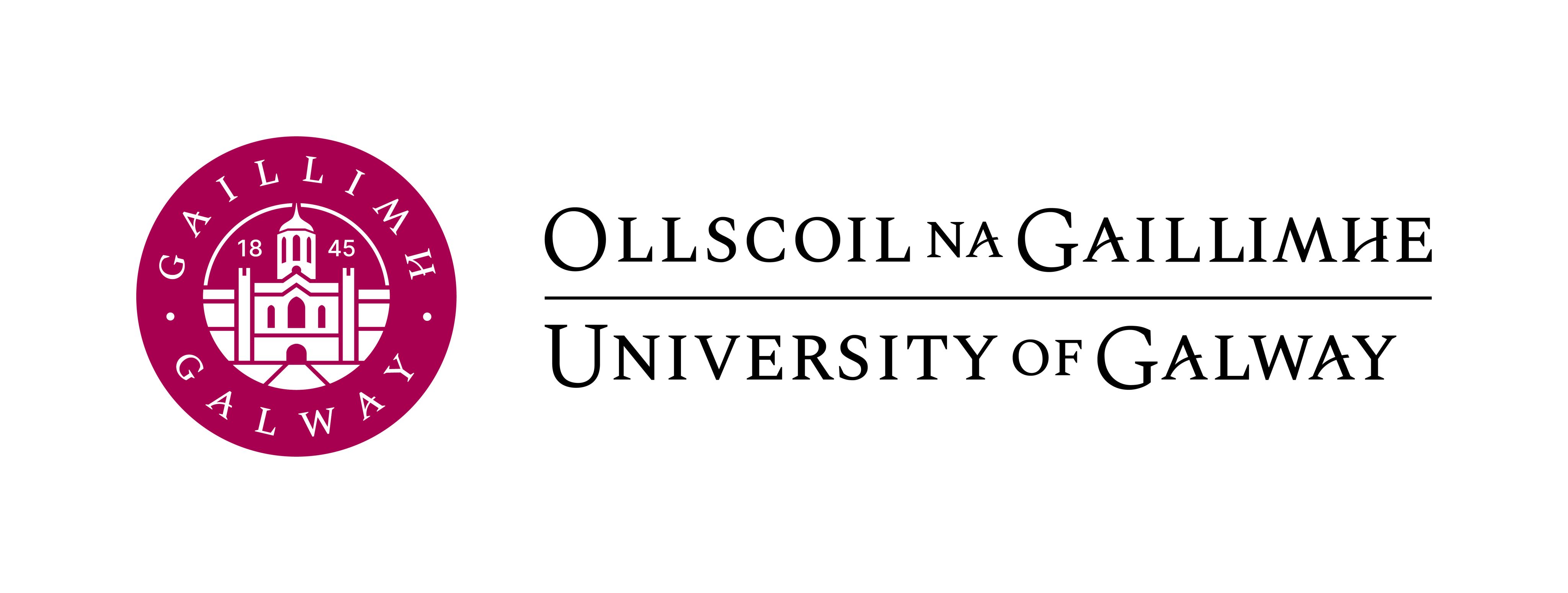TUAM ORAL HISTORY PROJECT
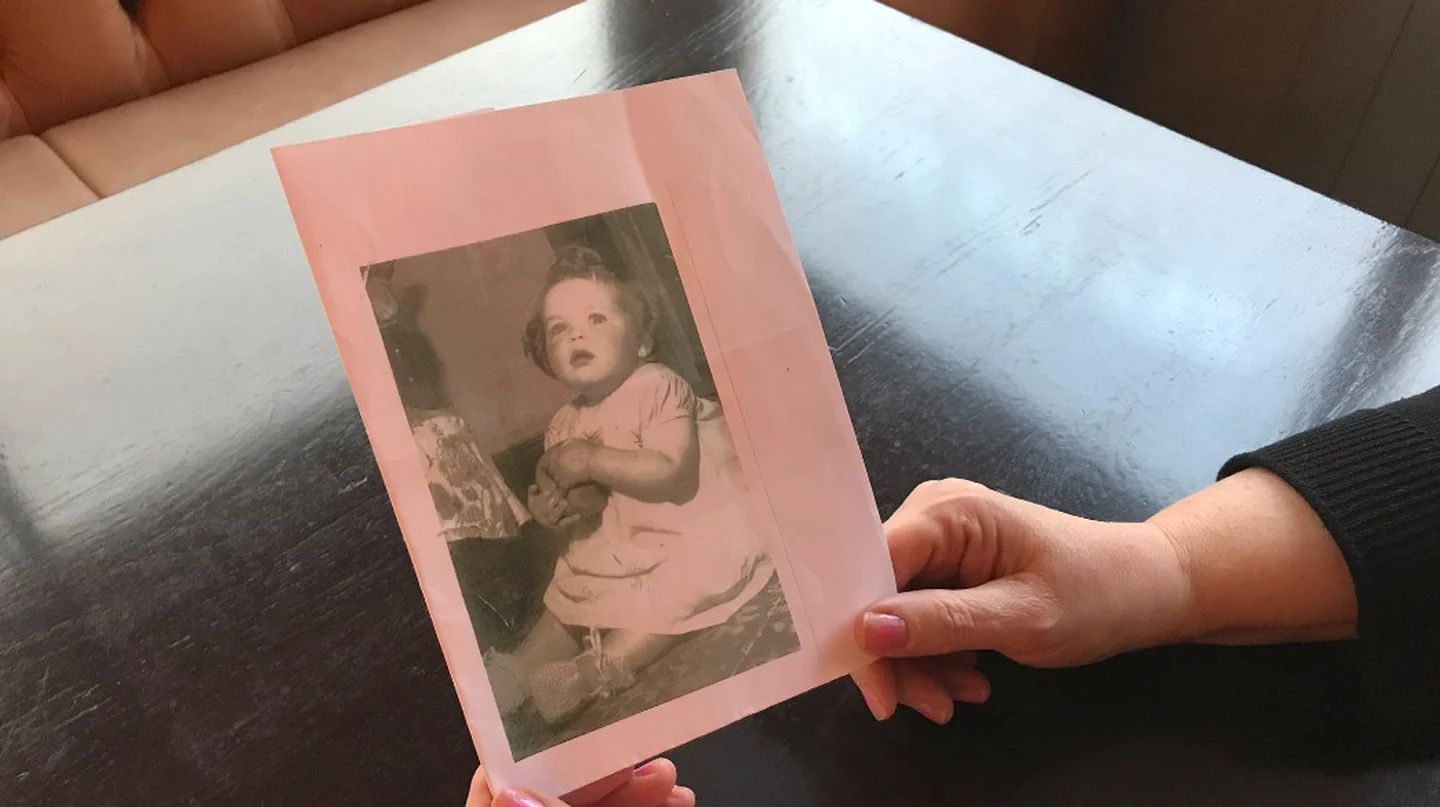
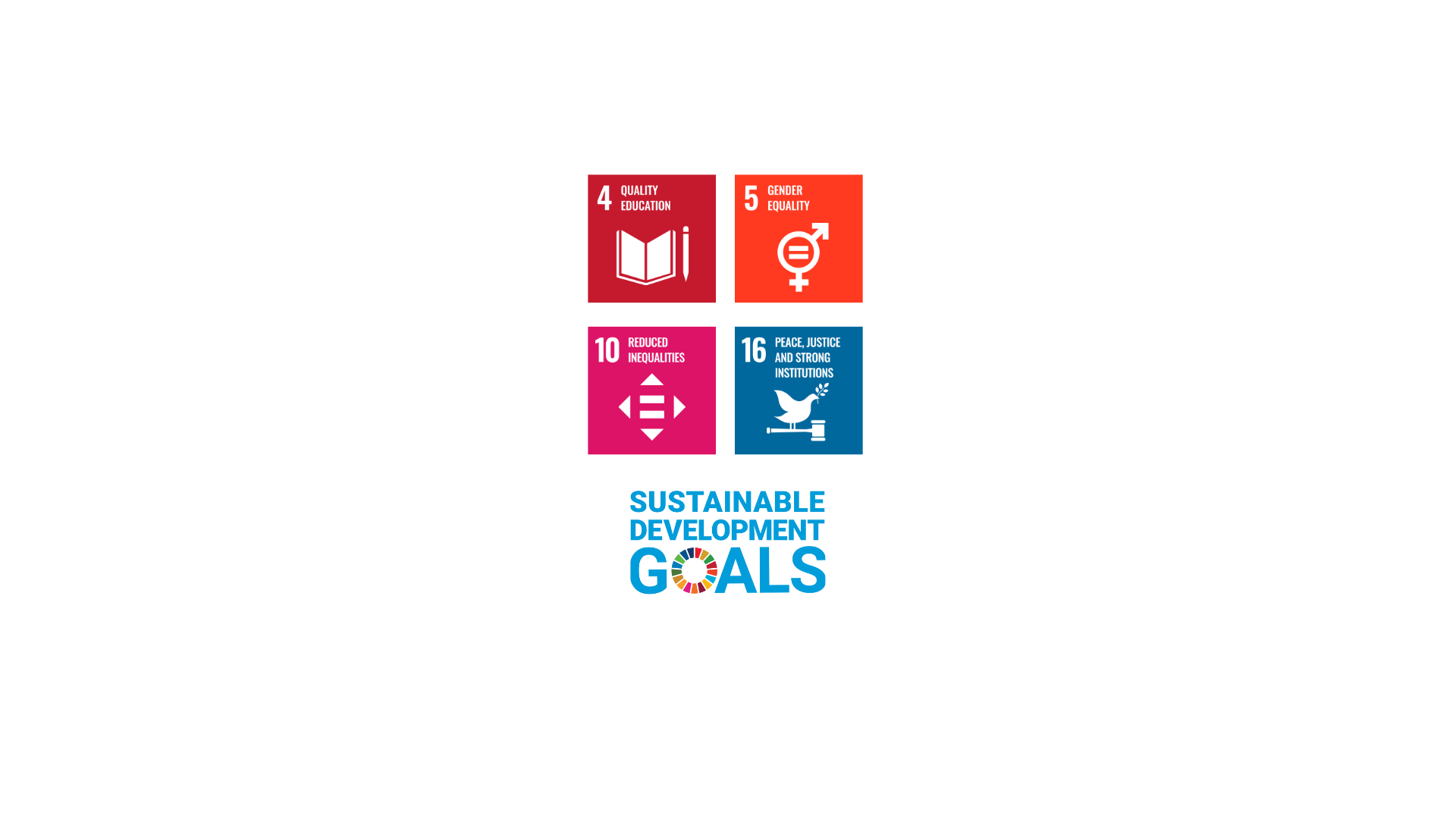
SUMMARY
How can the experiences of survivors of Ireland’s mother and baby institutions be recorded and researched in an ethical, trauma-informed manner that also brings benefits to those directly affected?
In 2019, the Tuam Oral History Project (TOHP) was formed, a grassroots co-created and interdisciplinary project. ‘Nothing About Us Without Us’ has been core to our approach, and we have seen the significant impact this approach can foster. The Tuam Mother and Baby institution was open from 1926-1961 and became known internationally after revelations by Catherine Corless of the burial in a septic tank of 796 infants. Educational impact includes the first Junior Certificate module on mother and baby institutions; advocating for survivors at political and policy level; the positive impact of being involved in creative works for stakeholders and media representation for survivors/those directly affected. It can also be seen in testimonials representing a counter narrative to some of the findings of the Final report of the Mother and Baby Homes Commission of Inquiry (MBHCOI).
Assistant Professor Sarah-Anne Buckley, School of History & Philosophy, University of Galway
Assistant Professor Sarah-Anne Buckley, School of History & Philosophy, University of Galway
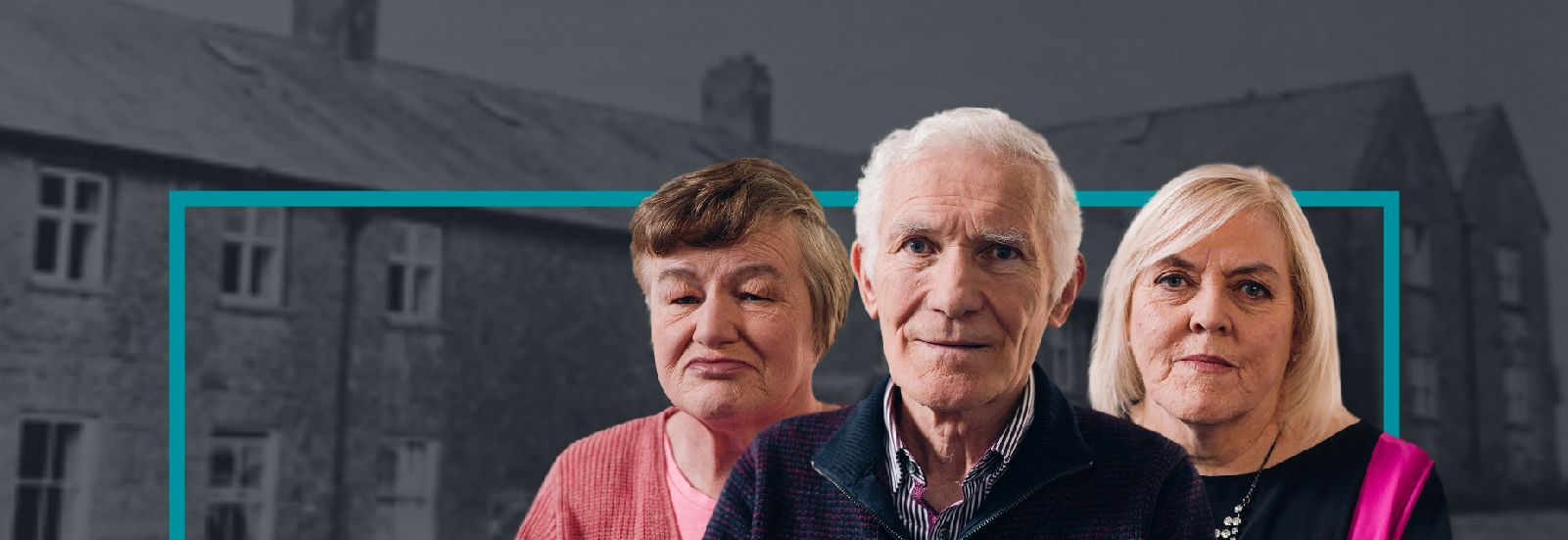
Research Description
The importance of this project and the study of this ‘home’ is that the Tuam institution was the catalyst for the setting up of the State’s Mother and Baby Homes Commission of Inquiry in 2015. A proposed three-year commission of inquiry would take almost six years. Catherine Corless’s efforts drew attention to the (mis)treatment of women and children in such institutions in Ireland and led to the establishment of the inquiry, which published its Final Report in January 2021, running to 2,865 pages. The protracted process drew international attention to the treatment of children of parents who were not married and to the great extent of institutionalisation in Ireland historically. Widely discredited by survivors, advocates, academics and others, the findings of the report became the basis of the redress scheme launched in 2024.
Tuam is a small town in the west of Ireland, with a population of less than 10,000. Given our geographical proximity to the town (it is 34km from the university) and the research interests of Dr Sarah-Anne Buckley and Dr John Cunningham, in February 2019 a one-day event was held in the University of Galway involving academics, survivors and advocates. Survivors asked that the university create an oral history archive – a living archive to remain independent from State inquiries as there was concern over how the commission of inquiry had taken testimony at the confidential committee. The MBHCOI had also refused to hold public hearings or give participants a copy of their testimony. The importance of this lies in who creates and controls the narrative. As Johanna Skold states - "lived childhood must be narrated through memory". . . and, more importantly, the memories of those in institutions and the archival records of the institutions "seldom tell the same story". Many survivors had been part of previous commissions of inquiry into historic abuse in residential institutions like the Commission to Inquire into Child Abuse and were aware of the need for their testimony to be independently recorded.
The key aim of the project was to enable survivors of the Tuam institution and their families to tell their own life stories, in the way that they wanted them to be told. Methodologically, best practice for oral historians was the foundation of the work, as well as the principles of transitional justice and a trauma-informed approach. The testimonies are preserved by the James Hardiman Library along with relevant personal documents and available via the project webpage. Access to the material is for historical research/print or online publication/lectures/education programmes. Interviewees themselves determine whether to make their testimonies available now or into the future. The other key aim was to work with survivors to provide an artistic response to their stories.
The project team that was formed in the university was led by Dr Buckley and Dr Cunningham in History, and included colleagues from Drama, Archives and Creative Writing. We applied for four years funding and received one year - €57,000 from Galway University Foundation.
Mary Cunningham conducted many of the interviews; the creative writing workshops have been organized by Elaine Feeney, who in 2023 was longlisted for the Booker Prize in collaboration with writer Jess Traynor. Dr Miriam Haughton’s work on trauma, memory and performance has been central to her outputs and impact, while Dr Barry Houlihan’s work on access to archival resources and a focus on historical justice has brought further impact.
Lorna Farren has been a key member of the team in regard to marketing and is also the co-producer of the podcast Other: Stories of the Tuam Mother and Baby Home. Orla Higgins, the other co-producer of that series is currently completing a second series in collaboration with Mary Cunningham. 83 separate pieces of media have focused on the project with a reach of 16,198,416 in total. There have been 7 peer-reviewed articles/chapters published to date, a monograph will be published in 2025 and two edited collections. The research has fed into other projects including the Language, Terminology and Representation project which will be addressed in the impact section.



Details of the Impact
Politics and Policy
At a political level, consultation on a proposal to create a national oral history project as part of the National Centre for Research and Remembrance with key civil servants and, representation by Dr Buckley at a parliamentary Oireachtas Committee on the Retention of Records Bill in November 2019 have been key examples. Dr Buckley was also invited to meet with two Ministers responsible for the MBHCOI (Minister Katherine Zappone and Minister Roderick O’Gorman) in 2019 and 2022. The archive has also provided an alternative truth/representation of those directly affected to the Final Report of the MBHCOI. Dr Buckley has been invited to speak about the project at a number of international events – particularly the St Brigid’s Day Festival in Vancouver to raise awareness of similarities between the Irish and Canadian cases. The Irish Ambassador to Canada extended the invitation in 2021.
Individual participants have had impact demonstrated through their testimonies. Peter Mulryan and Teresa O’Sullivan were significant in raising concerns over the term ‘home’ being used to describe the institution.
In conjunction with the Department of Children, Equality, Disability, Integration and Youth, Dr Buckley, Professor Caroline McGregor and Dr Carmel Devaney were involved in the Language, Terminology and Representation Project. The impact of this project will be evidenced in future years but there has already been a change in attitudes to the terminology which is being used and the term ‘home’ is rarely used by survivors, civil servants and/the Minister responsible.
These testimonies are one small piece of a larger puzzle, but an important one. A tapestry of details and institutional connections emerge: the County Home where their mother was placed, or perhaps the Magdalene Asylum; the district where interviewees were fostered or boarded out, showing strong geographical concentrations. The testimonies also describe the work they did without pay, the thirty or more years that it took to find their mother, their families today. The diversity of these histories reveals similarities and differences in their life stories.
In April 2023, Dr Buckley was awarded an ENLIGHT Impact Ambassador Award representing the project and project team. ENLIGHT is a European University alliance of ten comprehensive, research-intensive universities from ten European countries (Belgium, Estonia, France, Germany, Ireland, Netherlands, Slovakia, Spain, Sweden, Switzerland), training over 300,000 learners per year and sharing a deep commitment to social responsibility. In May 2024 she again travelled to Bilboa to an ENLIGHT workshop to encourage others to engage in impactful research. In February 2024, she was invited to provide training at an event organised by the Network AESIS (Advancing and Evaluating the Societal Impact of Science) event on the project.
Media
83 separate pieces of media have focused on the project with a reach of 16,198,416 in total. This has included BBC Women’s Hour, Morning Ireland, CNN, RTE News and international outlets. The impact of this media can be seen in how it has provided an alternative truth/representation of those directly affected to the Final Report of the MBHCOI. Kara Fox from CNN spent three days meeting and working with participants and the project team while Dr Buckley met with Dan Barry who cited her work and his article ‘The Children of Tuam’ remains one of the most read ever published by the New York Times.
The podcast Other: Stories of the Tuam Mother and Baby Home has been downloaded over 20,000 times and actor Cillian Murphy has remained a strong supporter. In the podcast, Christine Carroll speaks of the lack of food in the institution, the stigma she felt her entire life and the experience of speaking her truth in recent years and the support she has received since she participated in the project.
Peter Mulryan’s plea for this history to be taught, for younger generations to understand is a central message from the podcast.
Teresa O’Sullivan also highlighted how important the project has been for her and others – the support it has given them knowing they are believed. As the Connacht Tribune wrote –
"the project is giving voice to the silenced children of Tuam". The Irish Times has referred to it as "the careful retelling of a buried story".
Performance
Creative works have been a key aim of the project. The impact of the creative writing workshops cannot be addressed yet as the work is ongoing, but a number of survivors met and worked with the Drama students who created a beautiful performance piece, Nochtaithe which was premiered at the Bealtaine Festival in May 2021 and the Liverpool Irish Festival led by Dr Miriam Haughton. They commented on how beautiful it was to watch the film (it was outside due to COVID-19) and the importance of performance and art to the project.
Participatory Research
To date we have taken 30 testimonies, 11 of which are available on the project website. Not all of the testimonies are yet publicly accessible, for varied reasons, but all those whose testimonies have been made available to date have chosen to use their own names. We owe them a great debt for sharing their history. As Johanna Skold states,
"lived childhood must be narrated through memory … and, more importantly, the memories of those in institutions and the archival records of the institutions “seldom tell the same story”.
Another key finding is that engagement and trust-building with participants takes time, empathy, and flexibility. Societal stakeholders have included survivor groups (The Tuam Home Alliance/Tuam Survivors Network) and the HSE West Counseling Service.
We held 6 events on campus and visited Tuam 15 times. Catherine Corless has been influential in giving legitimacy to the project as a trusted advocate for survivors.
The project has benefitted survivors who previously did not feel heard, and the team have facilitated social gatherings and involvement as well as educational talks. They have described their experience as one that was ‘empathetic’, ‘supportive’, ‘not at all like the experience of giving testimony at the MBHCOI’. Evidence of the project’s impact has been collected through group discussions, through media interviews in support of the project and through the outputs from the creative writing workshops. John Rodgers has written of his mother’s experience in the Galway Magdalen Laundry
"Only now – decades later – we learn Ireland’s beautiful young women were simply…hung out to dry".
Writing in the Business Post, Catherine Healy argues
"the Tuam Oral History Project provides survivors of Ireland’s institutional system with a way to ensure that the cruel treatment of unmarried mothers and their children can never be denied or forgotten".
In the same article, Teresa O’Sullivan commented
‘I was just thinking about my mother and what she would have made of the launch of the oral history project. I have a strong feeling she would have felt very justified hearing what was said. Even though she and all those mums were terrified to speak out, I think she would have been very grateful that there are so many people there supporting them now. I think she would have been proud’.
Educational impact
Several participants have had a direct impact on projects related to the oral histories. PJ Haverty and Peter Mulryan’s testimonies have both been included in a new Junior Certificate History module on ‘Mother and Baby Homes’ which will have significant educational impact from late 2024 as it will be available to 60,000 students per year. The National Curriculum Committee Association (NCCA) approached the project team and survivors asking to include it as a case study given the powerful nature of the testimonies, the resources on the webpage and the ethical co-creative approach.
Language, Terminology and Representation Relating to Ireland’s Institutions Historically Known as ‘Mother and Baby Homes’, ‘County Homes’ and related Institutions
Language, Terminology and Representation Relating to Ireland’s Institutions Historically Known as ‘Mother and Baby Homes’, ‘County Homes’ and related Institutions
ENLIGHT Impact Ambassadors 2023
ENLIGHT Impact Ambassadors 2023
Christine Carroll
Christine Carroll
Peter Mulryan
Peter Mulryan
Teresa O’Sullivan
Teresa O’Sullivan
Listen to Our Stories
"Other: Stories from the Tuam Mother and Baby Home" features the powerful testimonies of survivors Teresa O’Sullivan, Peter Mulryan and Christine Carroll, who share the lifelong impact of being born in the institution. The stories are narrated by actor Cillian Murphy, Patron of the UNESCO Child and Family Research Centre at the University of Galway.
Nochtaithe (Unveiled) performance
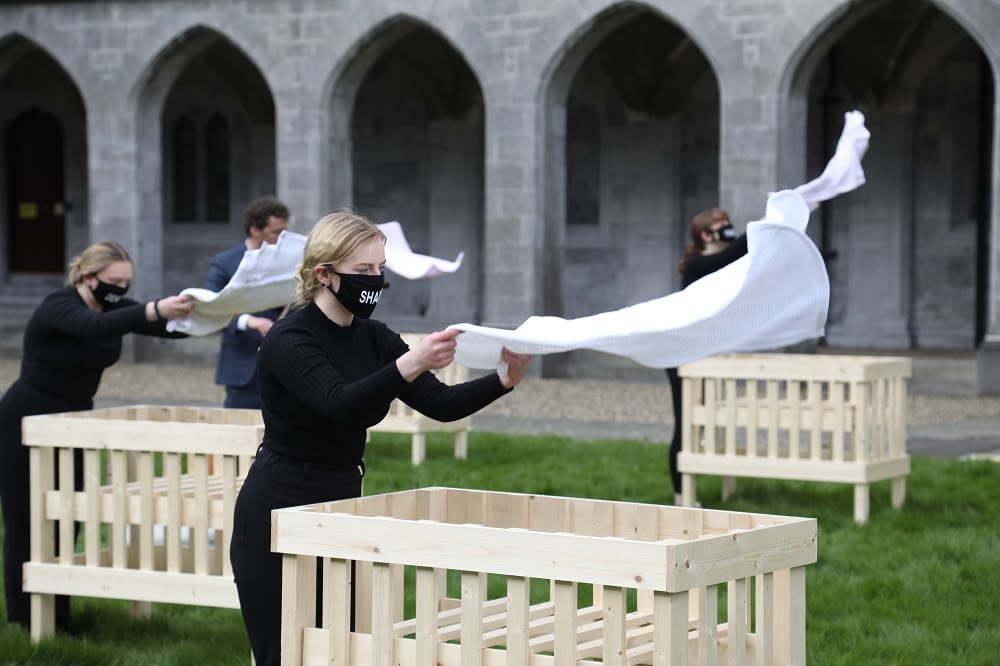
Research Funding
This research was supported by Galway University Foundation.
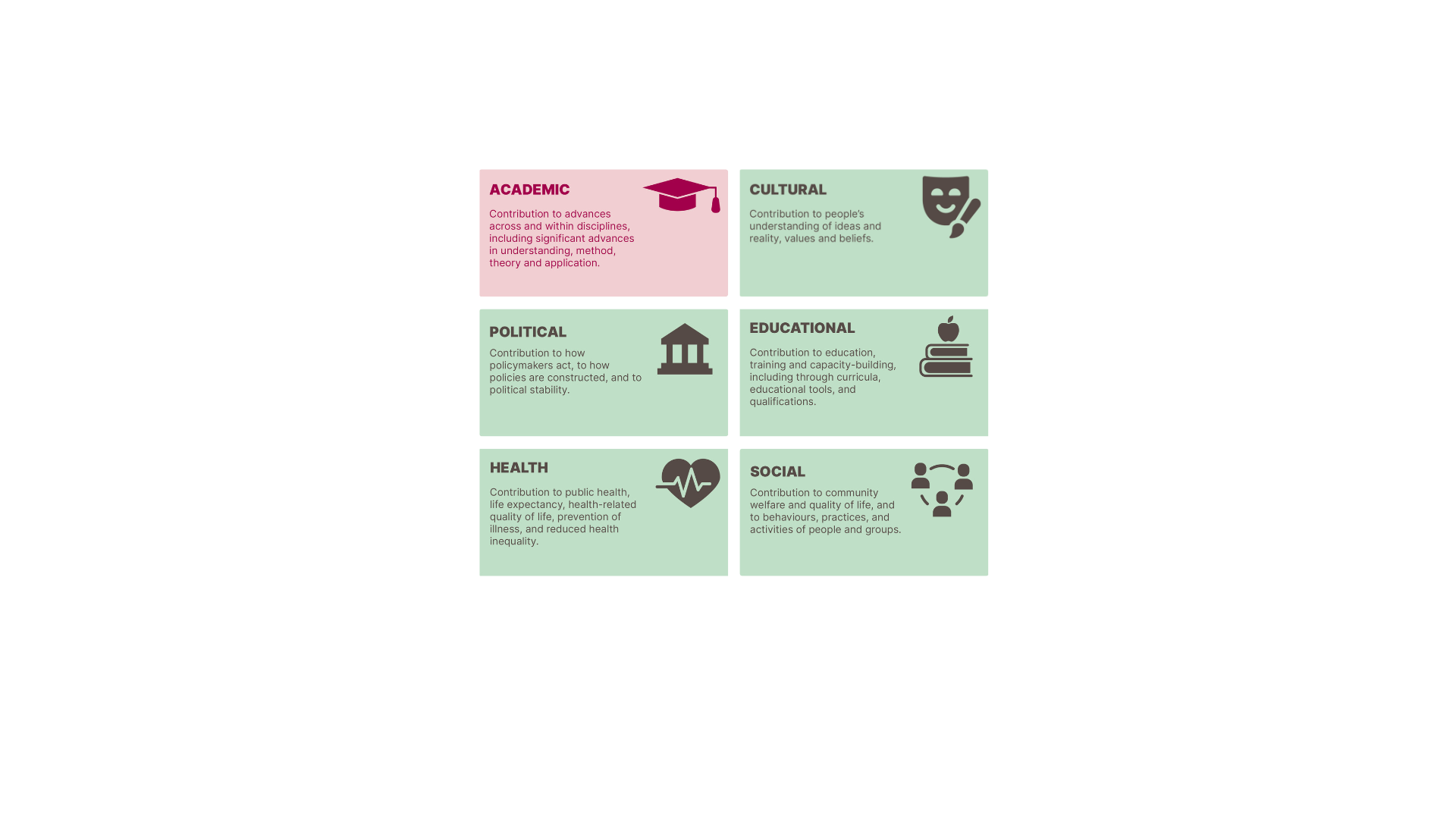
References to the Research
R1. Project Webpage - Tuam Oral History Project.
R2. Drama Performance ‘Nochtaithe’ (Unveiled) involving Drama and Theatre Students and an output from Dr Miriam Haughton. The production was co-created with Drama students, survivors and members of the Tuam Home Alliance and took place during the COVID-19 pandemic which added a further complexity. It also included a commissioned piece of music by Colm Mac Con Iomaire Nochtaithe and for its launch we facilitated three hours of recordings from those involved exploring how the work represented their experience.
R3. Three-part Podcast Series ‘Other: Stories from the Tuam Mother and Baby Home’ Narrated by Cillian Murphy and co-produced by Lorna Farren, Orla Higgins and Sarah-Anne Buckley
R4. Sarah-Anne Buckley and John Cunningham, “Commemorating the Irish Revolution: Disremembering and Remembering the Women and Children of the Tuam Mother and Baby Home and the Irish Revolution” in Women and the Irish Revolution: Feminism, Activism, Violence, Newbridge, Irish Academic Press, 2020, pp.198-215.
R5. Sarah-Anne Buckley and Lorraine Grimes, ‘From Tuam to Birmingham: A Case Study of Mother and Baby Homes in Ireland and the UK’, in Magdalen Laundries: Commemoration, Gender and the Postcolonial Carceral State, in Miriam Haughton, Mary McAuliffe and Emilie Pine (eds.), Manchester University Press, 2021.
R6. Miriam Haughton, 'Performance, Care and Intergenerational Response: Grieving for 'Ungrievable Bodies' in the Tuam Oral History Project'. Performance Research, 27 (6), 2023.
Evidence of Impact
E1. ENLIGHT Award for Societal Impact 2023.
E2. Kara Fox, “For decades, Ireland’s mother and baby homes were shrouded in secrecy. Some say the veil still hasn’t lifted”, 8 Sept 2019, CNN Article.
E3. Junior Certificate History Module ‘Mother and Baby Homes in Ireland’ to be launched in 2024 and developed in collaboration with the project team. Up to 60,000 students could take the module dependent on the uptake by teachers.
E.4 Noel Baker, ‘Tuam Oral History Project Exhibition Opens’, Irish Examiner, 31 July 2020.
E5. Tommy Meskill, Morning Ireland Extra, Tuam Oral History Project, 7 June 2019.
E6. ‘Survivor Stories Digital Exhibition’ Survivor Stories Exhibition
E.7 ‘Our distrust of religious institutions with healthcare is rooted in the past’, The Journal, 7 May 2022. https://www.thejournal.ie/readme/national-maternity-hospital-nuns-5756517-May2022/
E8. STOLEN which was put on general release and available via streaming services https://www.youtube.com/watch?v=_CXFktXhofw
E9. Written Submission to the Oireachtas Committee on Education and Skills on the Retention of Records Bill (2019). https://www.oireachtas.ie/en/debates/debate/joint_committee_on_education_and_skills/2019-11-26/3/
E10. Final Report of the IRC COALESCE Research Fund Collaborative Alliance with Department of Children and Youth Affairs (DCYA), Caroline McGregor, Carmel Devaney and Sarah-Anne Buckley, ‘Language, Terminology and Representation regarding Irelands Mother and Baby Institutions, County Institutions and Related Institutions’. https://www.universityofgalway.ie/cfrc/projects/currentprojects/languageterminologyandrepresentation/
